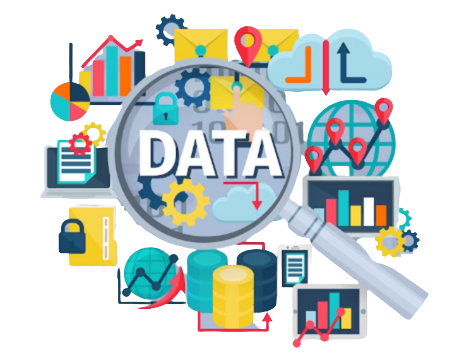Data governance challenges are a significant obstacle to effective Big Data management. However, by adopting best practices and strategies for effective data governance, organizations can overcome these challenges and make the most of the opportunities presented by Big Data.
In today’s data-driven world, Big Data is considered to be the cornerstone of business growth and success. However, it also presents some challenges, especially when it comes to data governance. Data governance refers to the process of managing data effectively and securely while ensuring compliance with legal, regulatory, and industry standards. In this blog post, we will discuss some of the most common data governance challenges that companies face when dealing with Big Data, as well as some best practices and strategies for overcoming these challenges.

Understanding Data Governance Challenges in Big Data
When it comes to managing Big Data, organizations face some data governance challenges, including:
-
Lack of Clarity and Consistency:
One of the biggest challenges of Big Data is the sheer volume of data that companies need to manage. With so much data coming in from multiple sources, it can be difficult to establish consistency in terms of data definitions and classifications. This can lead to confusion and inaccuracies when analyzing data.
-
Data Security and Privacy Risks:
Big Data poses significant risks when it comes to data security and privacy. Companies need to ensure that they are protecting sensitive information from unauthorized access, while also complying with legal and regulatory requirements.
-
Data Quality Issues:
The quality of data is crucial when it comes to making accurate business decisions. However, with Big Data, there is always the risk of data being incomplete, inconsistent, or inaccurate. This can lead to unreliable insights and business decisions.
Best Practices and Strategies for Overcoming Data Governance Challenges in Big Data
To overcome these challenges, organizations need to adopt best practices and strategies for effective data governance. Some of the best practices and strategies for overcoming data governance challenges in Big Data include:
-
Establishing a Data Governance Framework:
Organizations need to establish a data governance framework that outlines the policies, procedures, and standards for managing data effectively. This framework should include guidelines for data collection, storage, processing, and analysis, as well as data security and privacy requirements.
-
Investing in Data Quality Tools:
To ensure the quality of data, organizations should invest in data quality tools that can identify and correct errors, inconsistencies, and inaccuracies in data. These tools can help organizations to maintain consistency and accuracy in data, and prevent data quality issues from arising.
-
Implementing Data Security Measures:
To protect sensitive information from unauthorized access, organizations should implement data security measures such as access controls, encryption, and monitoring. These measures can help to prevent data breaches and ensure compliance with legal and regulatory requirements.
-
Training Employees on Data Governance:
To ensure that data governance policies and procedures are being followed effectively, organizations should provide training to employees on data governance best practices. This training can help to establish a culture of data governance within the organization and ensure that everyone is aware of their role in managing data effectively.
-
Conducting Regular Audits:
To ensure that data governance policies and procedures are being followed effectively, organizations should conduct regular audits of their data management processes. This can help to identify any areas of weakness or non-compliance and take corrective action where necessary.
Conclusion
In conclusion, data governance challenges are a significant obstacle to effective Big Data management. However, by adopting best practices and strategies for effective data governance, organizations can overcome these challenges and make the most of the opportunities presented by Big Data. By establishing a data governance framework, investing in data quality tools, implementing data security measures, training employees on data governance, and conducting regular audits, organizations can ensure that their Big Data initiatives are successful and contribute to their overall business growth and success.
Check out Tanbits on GoodFirms. Our company specializes in Big Data services and can help you overcome data governance challenges through effective strategies and best practices. Our services include establishing a data governance framework, investing in data quality tools, implementing data security measures, training employees on data governance, and conducting regular audits to ensure successful Big Data initiatives that contribute to your overall business growth and success. Contact us to learn more about our Big Data services.
BACK










